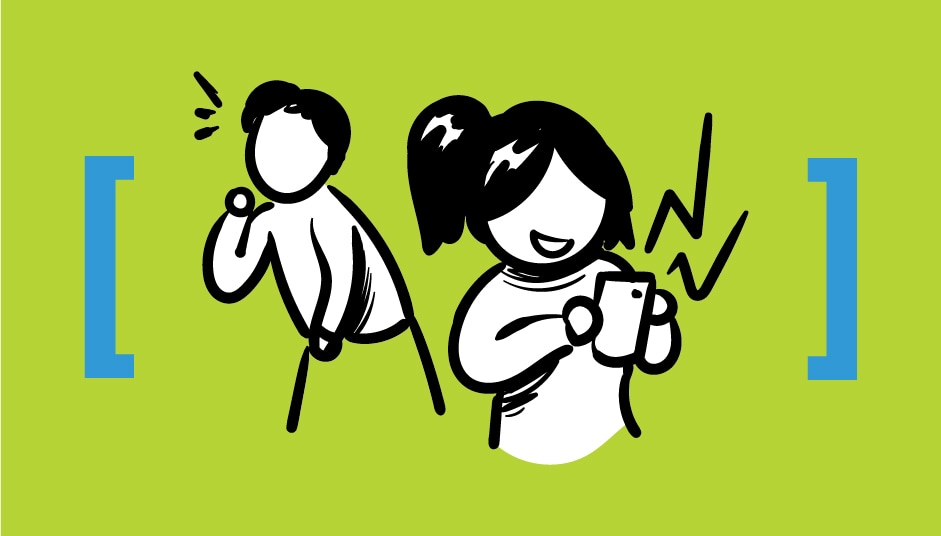What to do if your child is cyberbullying
You think your child is cyberbullying others
If you suspect or know that your child is involved in cyberbullying, you may feel a mix of emotions – from disbelief to disappointment. It’s important to set that aside and focus on your child’s actions, ensure they understand the seriousness of the issue, and be there for them as you deal with the bullying behaviour and any consequences together.
Warning signs to look for
Online behaviour
- Your child has multiple accounts on multiple social media sites which means they may be using accounts to harass others.
- You hear insults, sarcastic comments or mean-spirited laughter while your child is online or texting.
- They become more secretive about their online activity.
- They become annoyed or quickly hide their screens when you come near.
- They spend long hours online — perhaps when others are sleeping.
Other behaviour
- Your child is spending time with friends who behave in ways that are mean or uncaring.
- They don't seem to care if their words or actions hurt others.
- They may become frustrated and become aggressive as a result.
- They may resist following rules.
- They may be judgmental and critical of others.
- They may be reacting to difficulties at home or lack of parental involvement.
What you can do
Cyberbullying can be serious, but it doesn’t mean you are a bad parent or that you have a bad child.
Talk with your child about cyberbullying
- Stay calm when letting them know you are aware of the cyberbullying. Ask them to tell you exactly what has occurred.
- Reinforce that cyberbullying is unacceptable, for any reason.
- Help them understand the consequences of their actions and how it may have made the target of the cyberbullying feel. Ask them how they'd feel if someone was doing the same things to them or to someone they care about.
- Talk with them about known cases where things have led to very tragic results. Ask them how they would feel if their behaviour led to that.
- Try to get an understanding of why they may be doing this. Are they trying to fit into a peer group? Are they trying to be more popular and be liked by others? Are they upset about something at home? Or have they been bullied themselves and are trying to get revenge?
- Talk with them about the seriousness of their actions. Let them know their actions may be criminal, and ask them how they'd feel if their actions were reported to the police or to school authorities.
Take action to stop cyberbullying behaviour
- Monitor your child’s online activity more carefully. Try to learn what social media apps and sites they are using and how. As much as possible, keep connected devices in common areas.
- Consider limiting the amount of time they spend online.
- Consider installing monitoring software on connected devices.
- Encourage your child to remove the hurtful messages, videos, photos, or other content they have posted if possible.
- Encourage them to wait a bit after writing something before posting it, then ask themselves if what they've written is hurtful.
- If you feel their friends are negatively influencing your child’s behaviour, you may want to encourage your child to spend less time with them – online and off.
- If the bullying continues, consider taking away their device or computer for a period of time.
- Encourage your child to apologize to the person their actions have hurt – but only if an apology would be sincere.
Get outside help to deal with cyberbullying
- If school authorities become involved, cooperate and encourage your child to do the same. Make every effort to see things from all sides, and work towards a solution that will help your own child and the people their actions have hurt.
- Become familiar with the relevant legal issues if the bullying has been severe. See the potential legal consequences of cyberbullying.
- If your child appears to be depressed, angry, withdrawn, or showing other signs that they are struggling emotionally, seek professional help to support them. Bullying behaviour can be a sign of other emotional issues.
What you should avoid doing
- Don't respond with anger. This is likely to makes things worse, not better. Talk with other adults to work through your own emotions.
- Don't deny the situation or find someone else to blame. Your child needs you as a guide and role model, and acknowledging the damage they have done is important.
- Don’t allow justifications for the behaviour. Retaliation or the desire to fit in are not good reasons to cyberbully. There are no good reasons.
- Don’t assume your child would never do it. Many parents are surprised to learn that their child is capable of bullying behaviour.
